Are you already feeling a little bored with traditional 2D, 3D movies? Nowadays, 4D and 5D theaters are gradually entering our field of vision, bringing a more shocking and immersive viewing experience. Today, let’s talk to you about what 3D, 4D, and 5D theaters are and what are the differences between them.
What is 3D Cinema and Cinema?
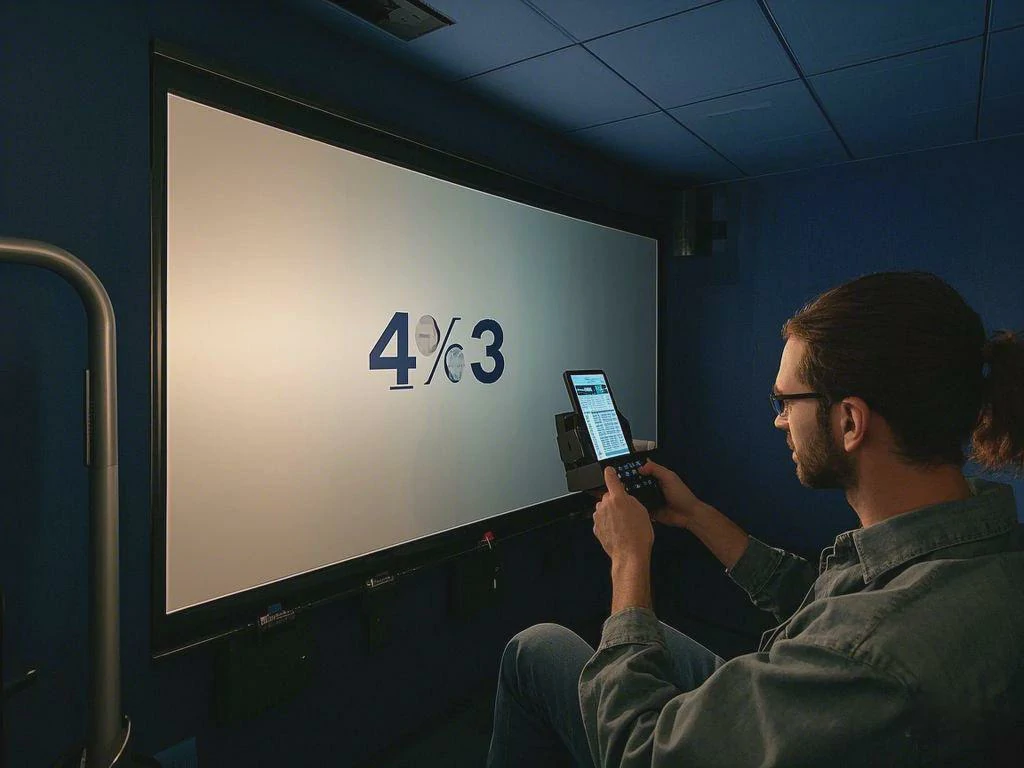
3D film is a special shooting and projection technology that allows the viewer to see a three-dimensional image. To put it simply, it is to make the objects in the picture appear to exist in the three-dimensional space around us, rather than just being limited to the flat surface of the screen. In cinemas, audiences need to wear special 3D glasses that allow their left and right eyes to see images from different angles, creating a three-dimensional visual effect in their brains.
The main features of 3D cinema
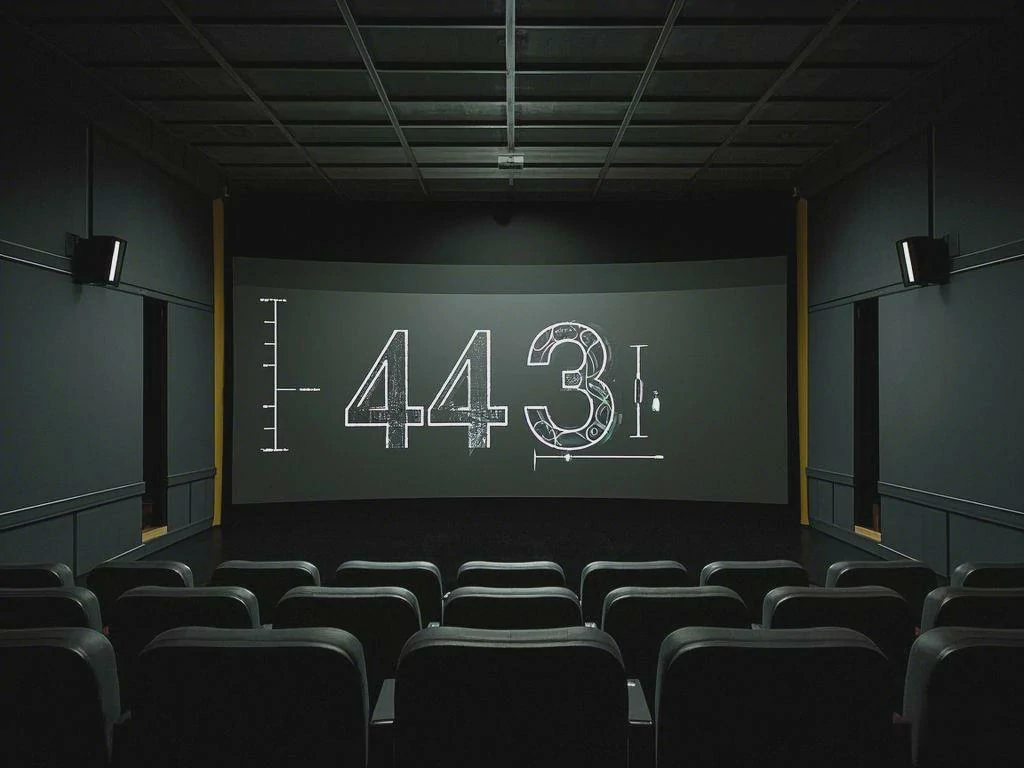
Stereo vision: The most significant feature is the three-dimensional sense of the picture, which makes the audience feel as if they are in the movie scene and enhances the sense of visual immersion, such as when watching “Avatar”, the fantastic scenery and creatures of Pandora seem to be within reach in front of you
Widespread access: The technology is mature and the equipment cost is relatively low, so it is widely available in major theaters, and audiences can easily find 3D versions of the film.
What is 4D Movies and Cinema?
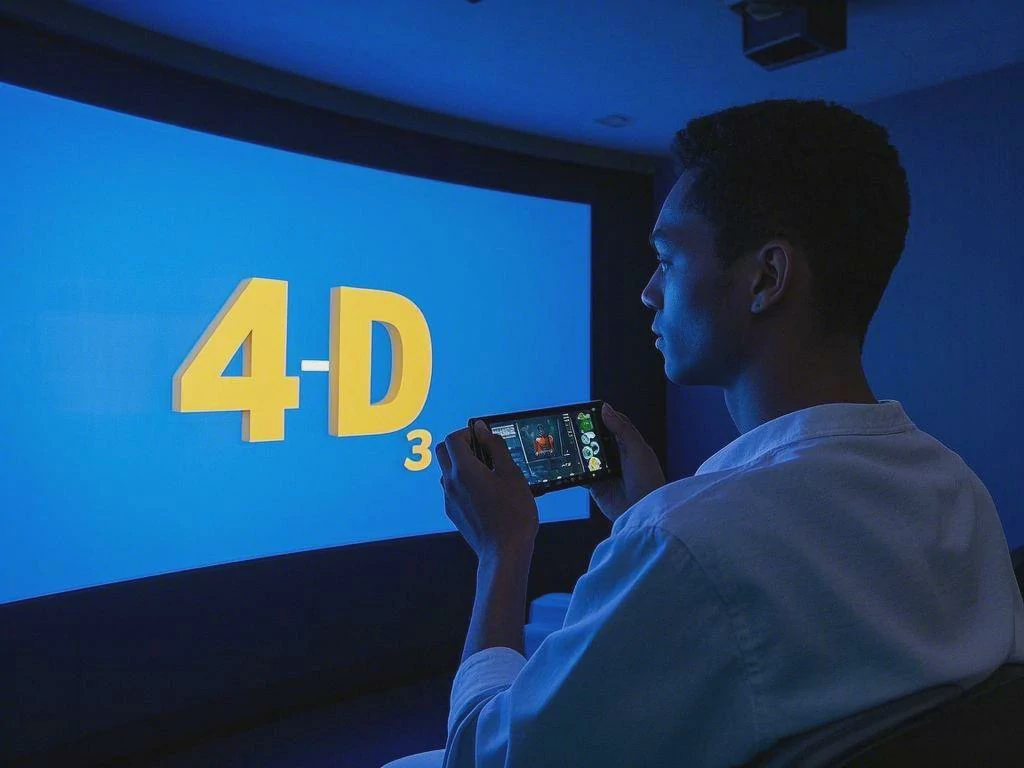
4D movies add environmental special effects simulation on top of 3D stereo vision. The seats in the theater can vibrate, shake, and swing according to the plot of the film, and will also cooperate with environmental special effects such as spray, wind, rain, and lightning to stimulate the audience’s senses from many aspects such as sight, hearing, touch, and smell.
The main features of the 4D cinema
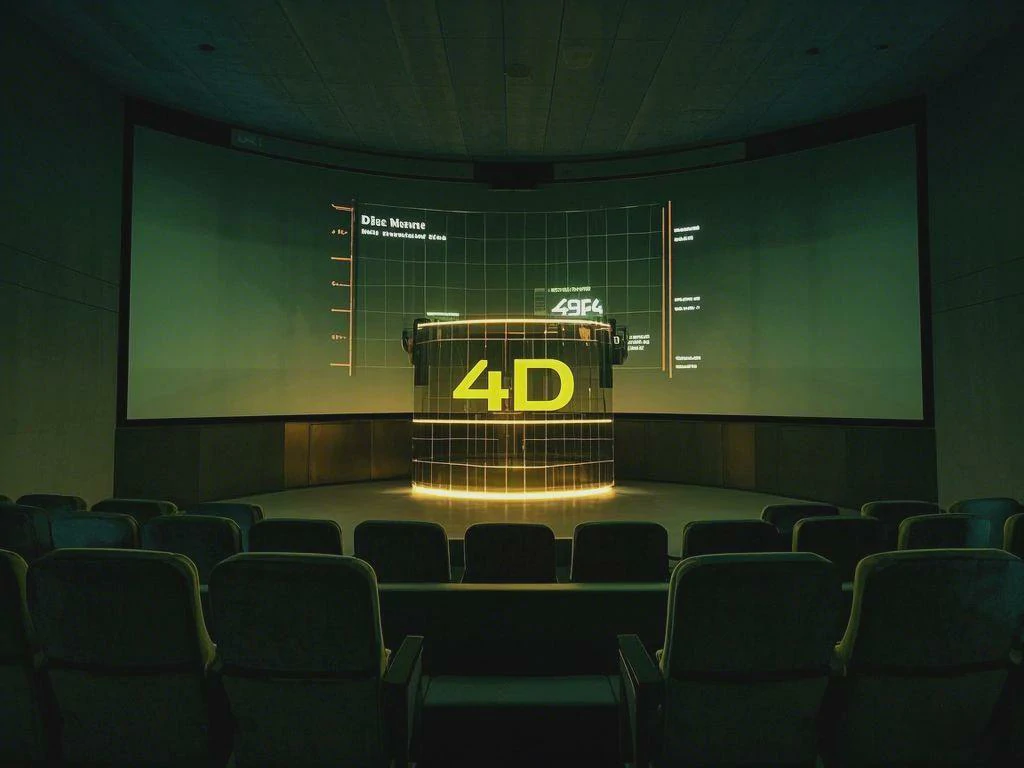
Multi-sensory experience: In addition to stereoscopic images, environmental effects and seat movements allow the audience to fully immerse themselves in the plot of the movie. For example, when watching a disaster movie, you can feel the bumps of the earthquake, the impact of the flood and the baptism of wind and rain, which greatly enhances the realism and tension of watching the movie.
Enhance interactivity: The audience is no longer just passively watching, but is more actively engaged with the movement of the chair and the change of the environment, as if they are part of the film.
Difference Between 3D and 4D Movie/Cinema
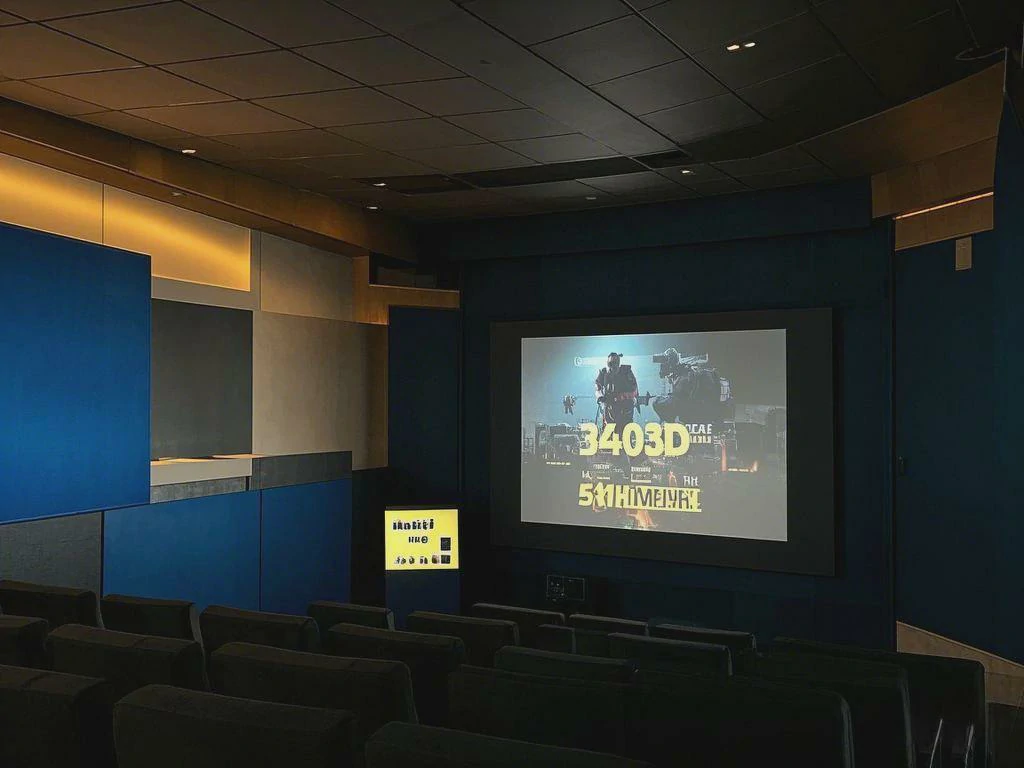
Experience dimension: 3D mainly focuses on the three-dimensional presentation of vision, while 4D adds more dimensions of experience such as touch and smell on this basis, allowing the audience to be more deeply immersed in the movie situation.
Equipment differences: 3D theaters rely mainly on 3D projection equipment and glasses, while 4D theaters need to be equipped with specialized motion seats and environmental special effects simulation systems, which are relatively expensive for equipment and maintenance.
What is 5D Movies and Cinema?
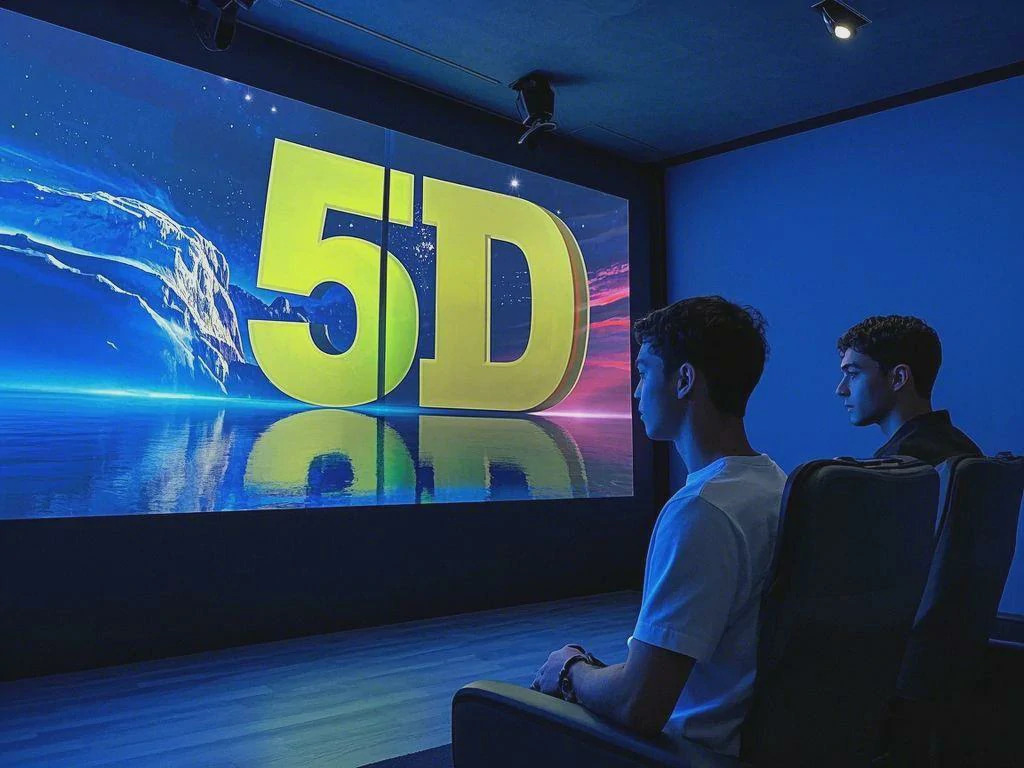
5D movies can be said to be a further upgrade of 4D movies, which adds more interactive elements on top of 4D. The audience can interact with the plot of the movie through the controller in their hands or the sensor device on the seat, such as choosing the direction of the plot and shooting the target in the movie, so that the audience can truly become a participant in the movie, not just a spectator.
The main features of the 5D cinema
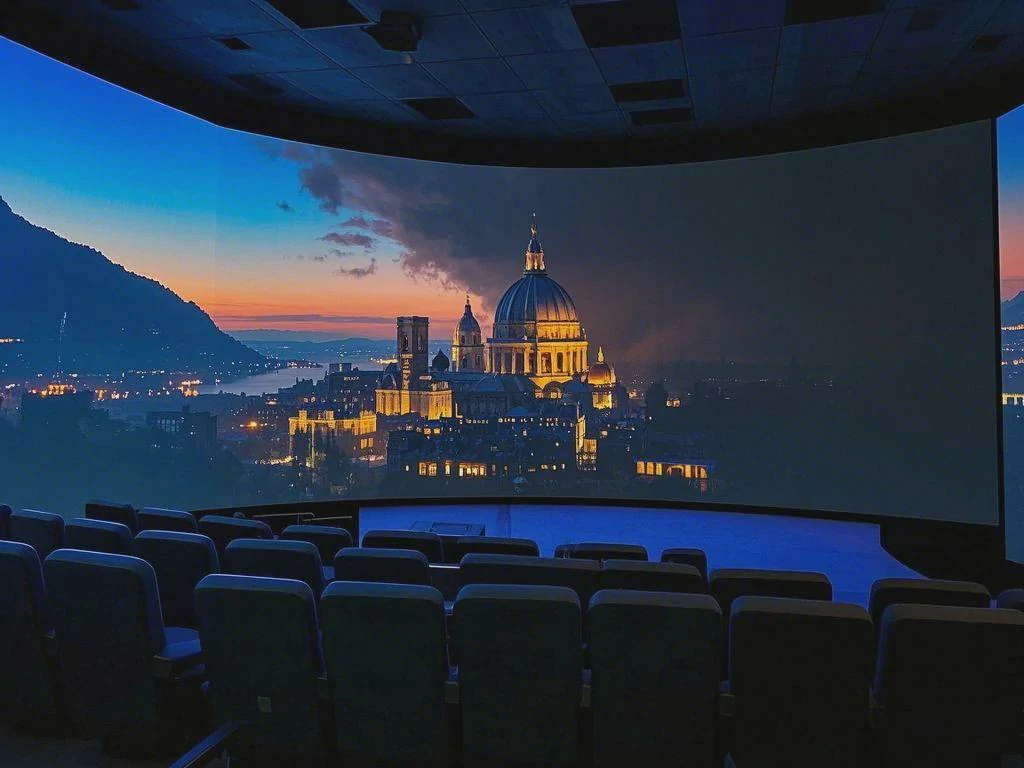
Deep interaction: The audience can directly influence the development of the movie, and this sense of participation makes every viewing possible to have a different experience, which greatly improves the interest and repeat viewing value of the movie.
Extreme Immersion: Combine 3D visuals, environmental effects, dynamic seating, and interactive features to create a near-real virtual world that immerses audiences in the story and has never experienced it before.
Difference Between 4D and 5D Movie/Theater
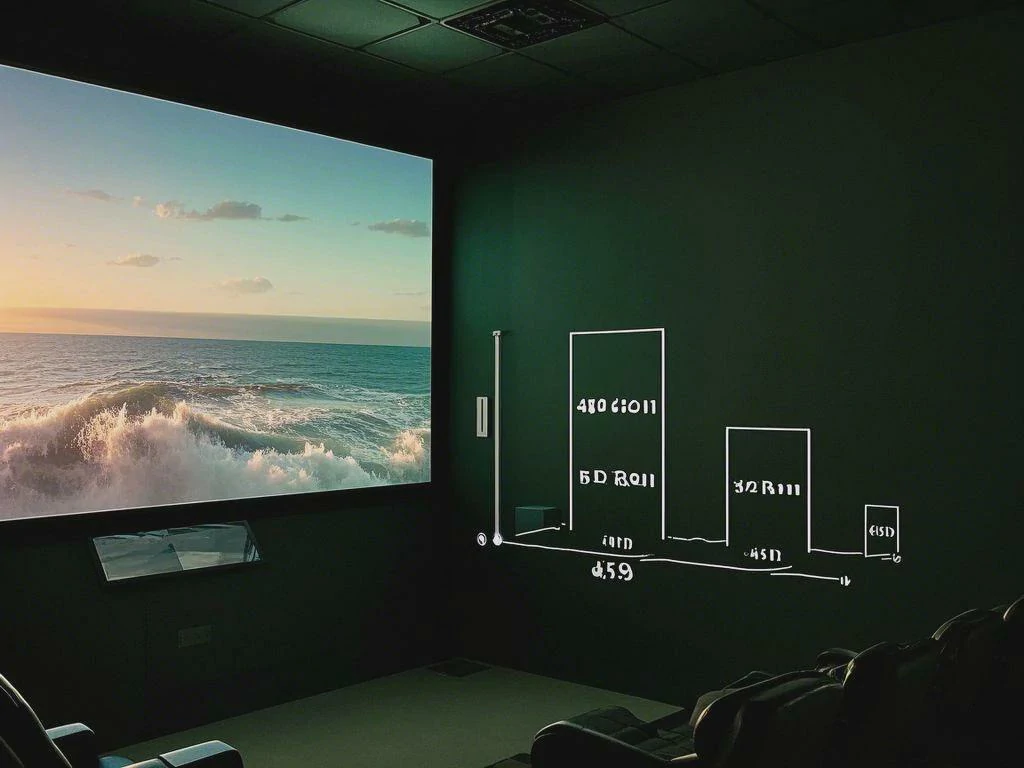
Interactivity: 4D movies are relatively less interactive, mainly through preset special effects and seat movements to enhance the experience; 5D films, on the other hand, are more interactive, allowing the audience to decide part of the plot and engage more deeply with the film.
Technical complexity: 5D theaters require more advanced sensing technology, interactive programs, and more complex system integration to enable audiences to interact with movies in real time, which is more technically difficult and costly than 4D theaters.
conclusion
From 3D to 4D to 5D, the continuous development of cinema technology has brought us more and more rich and immersive viewing experience. 3D laid the foundation for stereoscopic vision, 4D expanded the multi-sensory experience, and 5D further deepened the interaction between the audience and the movie. Each technology has its own unique charm and advantages, satisfying the diverse needs of different audiences for movie experience. Whether it is the audience who pursues pure visual enjoyment, or the fans who are eager to immerse themselves in it, or the experiencers who want to personally participate in the plot of the movie, they can find their own fun in these different types of theaters. With the continuous advancement of technology, I believe that there will be more amazing viewing technologies in the future. Let us wait and see, and continue to enjoy the infinite charm brought by movies!
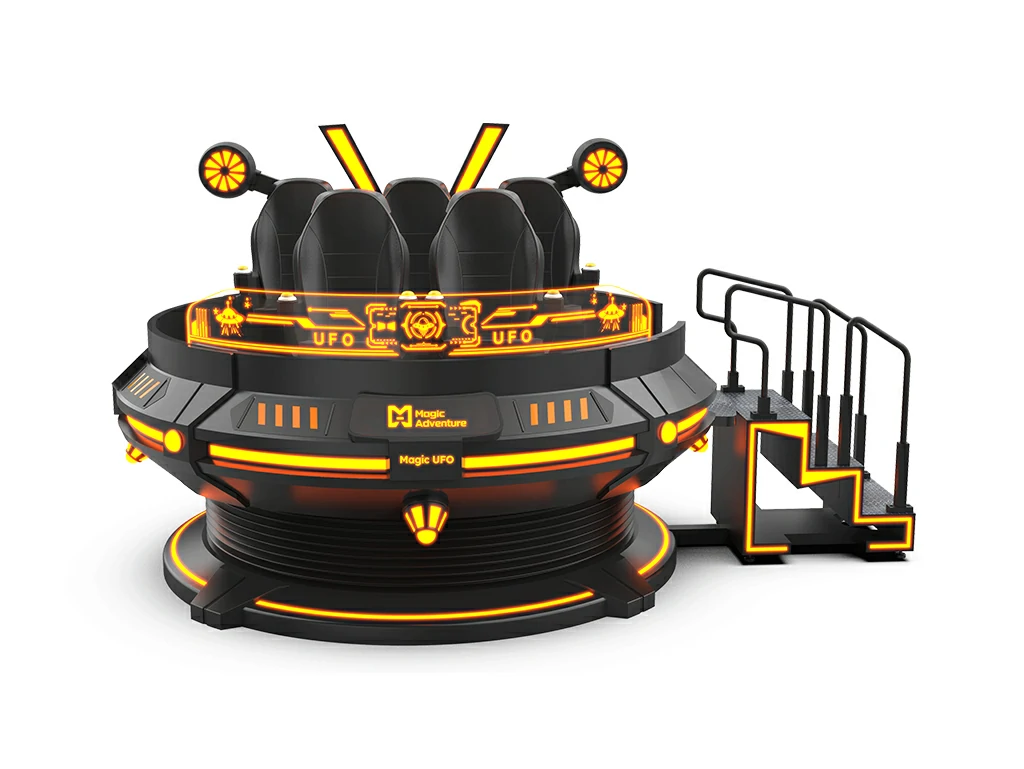
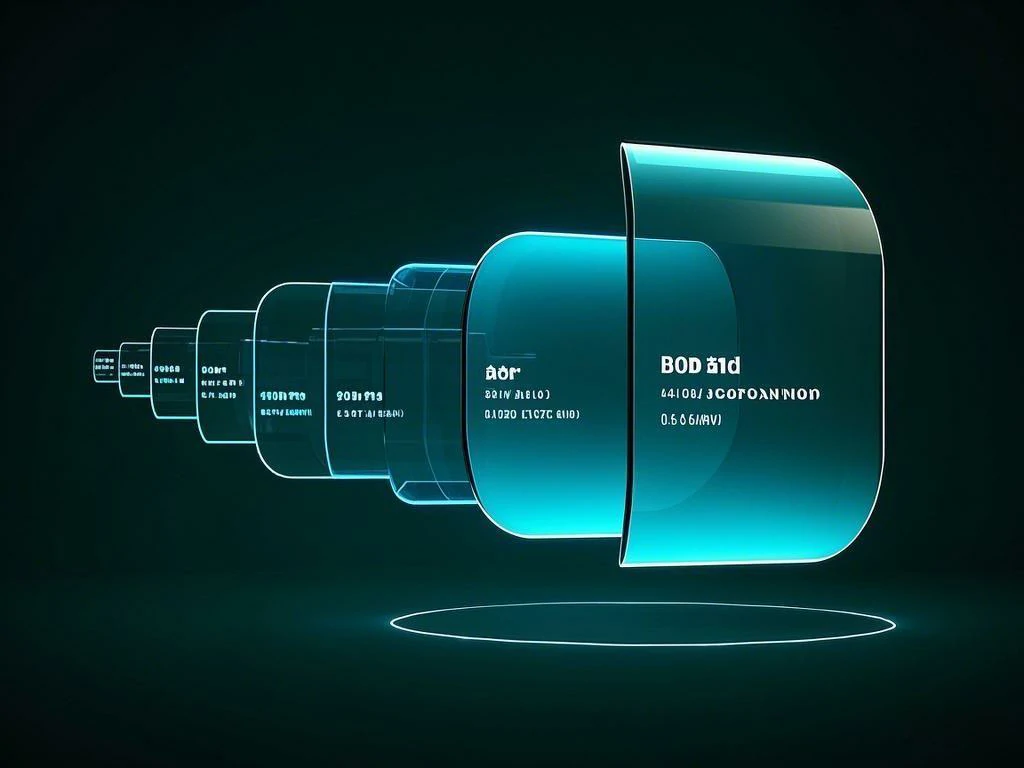
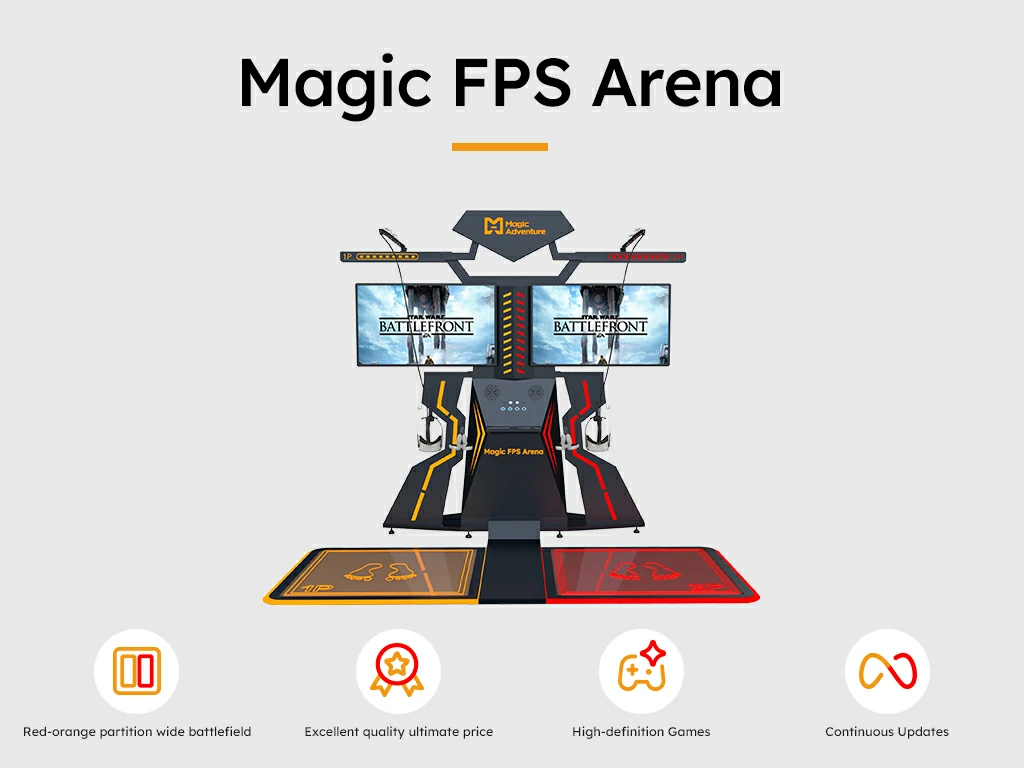
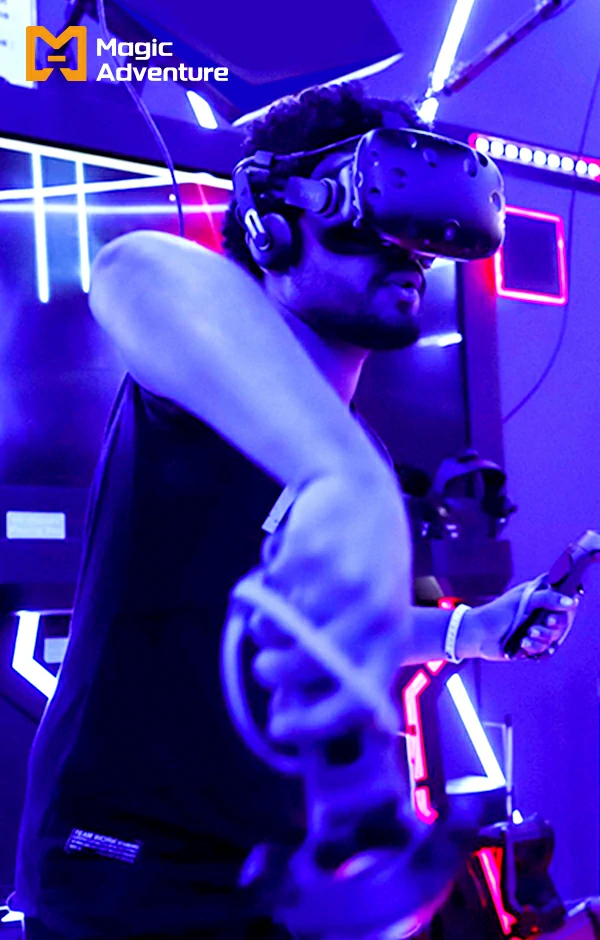
Comments are closed